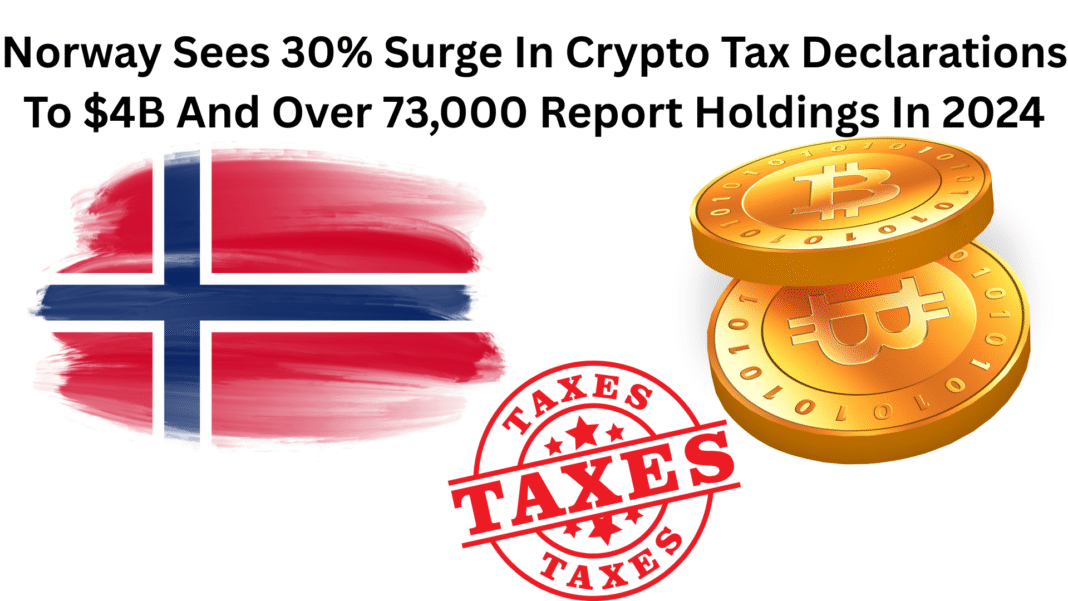According to recent data from the Norwegian Tax Administration (Skatteetaten), cryptocurrency tax declarations have sharply increased in Norway, with over 73,000 individuals reporting digital asset ownership in their 2024 tax returns, a 30% increase from the previous year.
Increased crypto activity
The spike indicates increasing openness in the nation’s digital asset sector and is the biggest year-over-year increase in cryptocurrency reporting since records first started.
The overall value of stated cryptocurrency holdings more than quadrupled to NOK 40.3 billion ($3.9 billion), the greatest amount ever recorded.
According to Tax Director Nina Schanke Funnemark, the rise is a result of recent initiatives to promote voluntary compliance.
“It is gratifying that more people are reporting that they own cryptocurrency and in this way ensuring that the tax is correct,” she said. “We have taken several measures in recent years to increase this number, and we see that these measures are having an effect.”
In 2019, fewer than 10,000 Norwegians reported owning crypto assets. That number has now grown more than sevenfold.
Norway and Crypto
The surge follows the start of the tax agency’s digital reminders, or dults, to taxpayers who could have virtual or cryptocurrency assets but neglected to disclose them.
The most recent data also shows that market prices increased during 2024, greatly increasing the overall reported worth of digital holdings. According to Skatteetaten, recorded losses over the same time were NOK 2.9 billion, while profits in cryptocurrency reached NOK 5.5 billion.
Because cryptocurrency is regarded by Norwegian law as a capital asset rather than a currency, trading earnings and losses are liable to capital gains tax.
In 2025, the central bank of Norway is probably going to propose a digital currency. A study claims that Norges Bank is still on track to finish recommending the launch of a central bank digital currency in one of the most paperless countries in the world next year.
Assuming that the first coins purchased are the first ones sold, the Norwegian system calculates the cost basis of cryptocurrency sales using the First-In, First-Out (FIFO) technique.
Every year, cryptocurrency holders are required to report their digital assets as part of their net worth in addition to paying capital gains tax. Norway levies a wealth tax on assets over NOK 1.7 million, with rates varying according to municipality and income.
Also Read: MicroStrategy’s Bitcoin Strategy Attracts $500M Investment From Norway Central Bank


